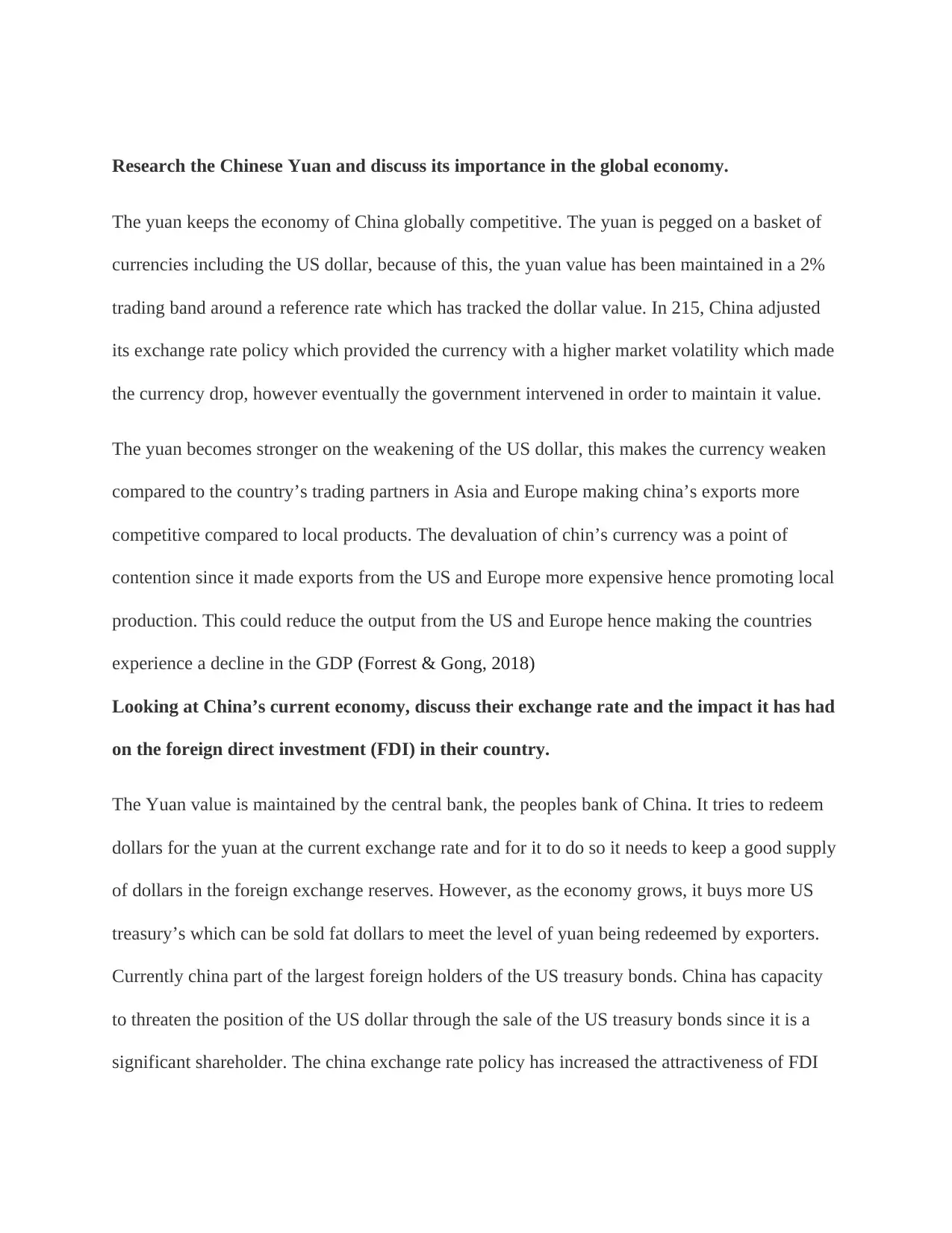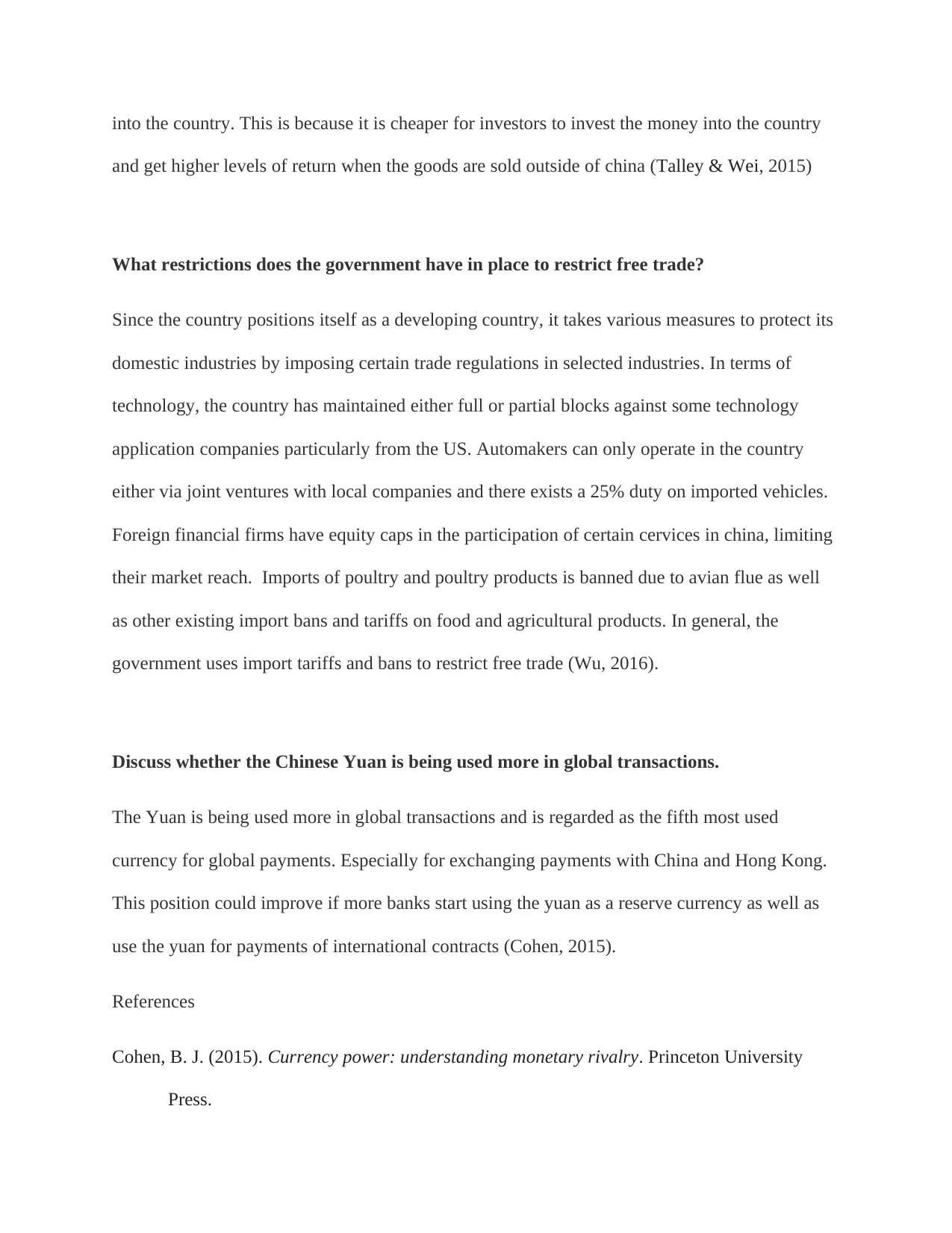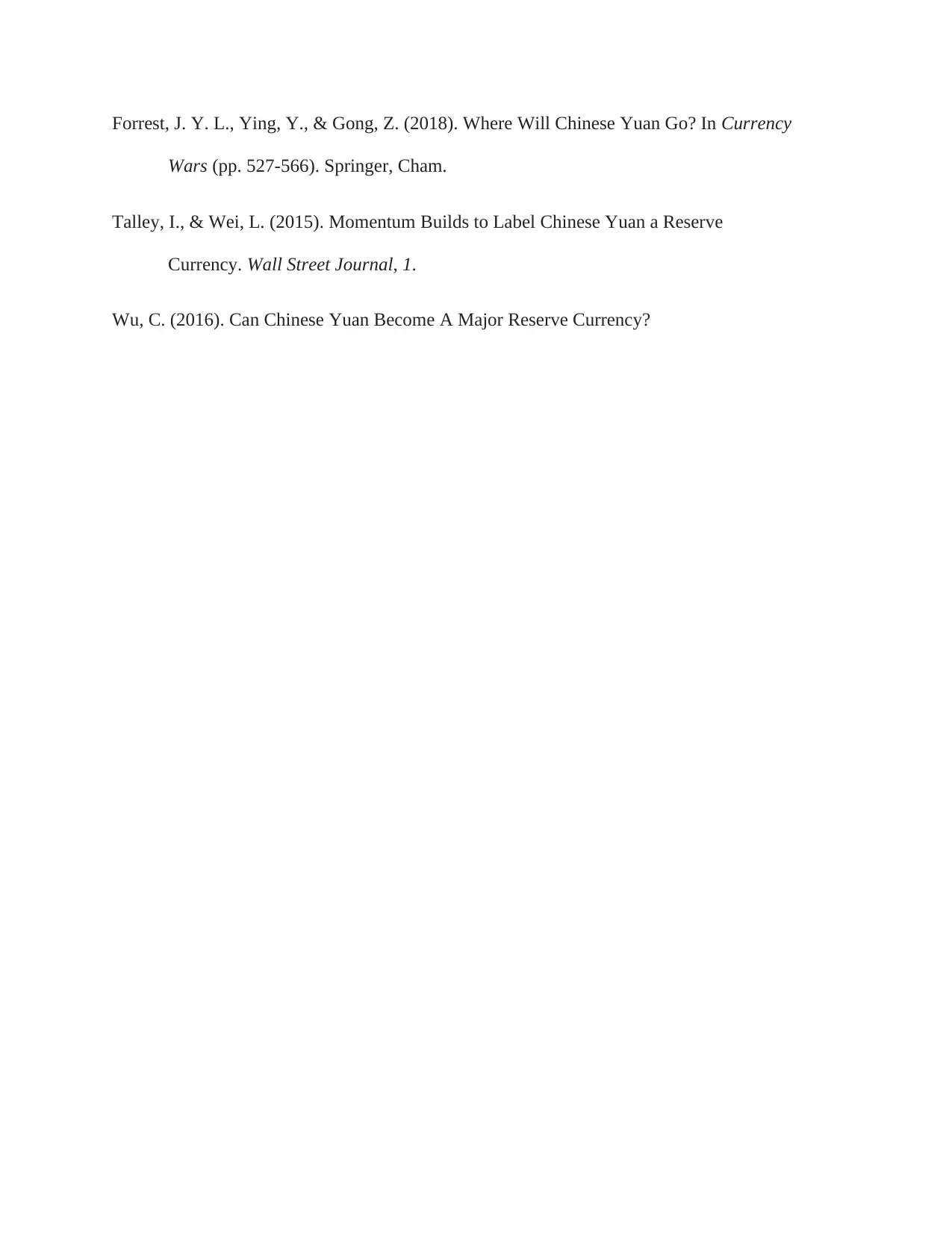Analysis of the Chinese Yuan's Influence on the Global Economy
VerifiedAdded on 2023/05/31
|3
|735
|404
Report
AI Summary
This report examines the significance of the Chinese Yuan in the global economy. It discusses the yuan's role in maintaining China's global competitiveness through its exchange rate policy, which is pegged to a basket of currencies and managed by the People's Bank of China. The analysis includes the impact of exchange rate adjustments on foreign direct investment (FDI) and the attractiveness of investing in China. The report also explores the trade restrictions imposed by the Chinese government to protect domestic industries, such as technology blocks, joint venture requirements, and import tariffs. Furthermore, it assesses the increasing use of the Yuan in global transactions, highlighting its position as a major currency for international payments, particularly with China and Hong Kong, and its potential to become a reserve currency. The report references key academic sources to support its findings.
1 out of 3









![[object Object]](/_next/static/media/star-bottom.7253800d.svg)